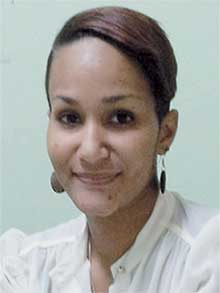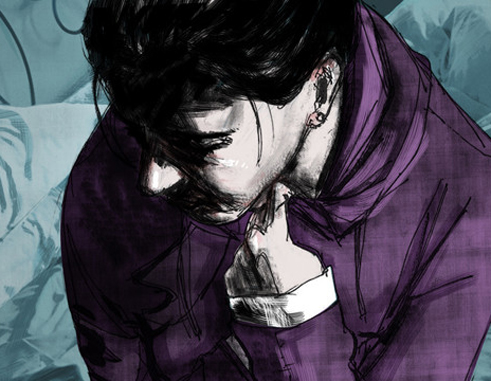
The typical “What to Do/Not Do So You Avoid Being Raped” lessons and conversations are often directed at our daughters and female counterparts: “Don’t go with the strange man, don’t let him touch you between there or on top here, don’t wear revealing clothing, etc.”
We talk vaguely to our daughters about a specific kind of threat lurking around but fail to warn and educate our boys. We warn them of the random attacker but fail to let them know the people they should also be wary of are those closest to them. We warn our daughters to look out for the boogie-man, but fail to warn our boys about those same predators.
We think our boys are immune to being sexually violated even in the face of countless cases to the contrary. Sexual Violence doesn’t discriminate based on gender, age, race, religion, economic status etc. Both boys and girls are susceptible to being sexually violated by other boys and girls and men and women. Educating both boys and girls on sexual violence is important and necessary.
We also fail to teach our boys not to become those perpetrators. We have raised them in a culture, where they are allowed to do as they please, we push them to become men, to man up, to take what they want, to dominate. We have also raised them in a culture that blames the victim and justifies the actions of the perpetrators — a dangerous combination.
We are constantly telling our girls what they should refrain from doing to prevent rape, leaving us with little room to live, when, in reality, nothing that any female does is responsible for the choice of the perpetrator to force themselves onto a victim, the choice to manipulate or coerce a victim into a sexual assault.
The truth is that nothing anyone of us does to attempt to prevent rape will change the mind of the individual who feels he is entitled to someone else’s body at any cost. Clothing, Location, Profession, the type of relationship I have, One’s Beliefs, etc. are no excuse for having someone force themselves on them, for having someone manipulate a situation, for someone ultimately choosing to violate another.
We don’t teach our boys about respecting a woman, about listening to what she says, we effectively don’t teach them not to rape. We equally don’t teach our girls that they can be perpetrators of sexual violence and in the same breath they should respect their male counterparts, listen to what they are saying, and respect their decision.
Our future generations and their needs are getting lost among all the trivial things we fight for. We claim to have their best interests at heart but fail to educate and prepare them for a future in which they are able to grow and thrive. We are often too eager to justify or excuse the actions of a perpetrator, we very quickly take the side of the perpetrator and blame the victim.
I guess by the same token anyone falling victim to a crime should be blamed; why was your home so attractive, why was your car so attractive, a thief breaking into your home or car is therefore also the fault of that victim.
I don’t mean to compare the two in anyway but I want to drive home the point that sexual violent crimes are the only crimes in which we all so easily take the side of the perpetrator and blame the victims for the crime committed against them.
Our children should be educated on the fact that anyone can attempt to sexually violate them; they should be told that they are not to feel threatened should the individual be a close relative/family friend, teacher, coach, priest, doctor etc.
They should be prepared for the random attacker as well as the individual they have come to know and trust. Statistics show that it is often the person they least expect to violate them who will. We talk around intimacy and sex but not about it.
For some strange reason we all seem to be very shy and uncomfortable broaching the issue. Our children are way past us in their knowledge; they are being taught by their peers, by the media, by the older family friends and relatives who will steal their innocence and potentially violate them.
We have to learn to feel comfortable speaking about sexual issues as they will arise. Sexuality is a part of their lives. We need to equip our boys and girls with the knowledge they need to stand firm, “Say No, I don’t like what you’re doing to me, this is wrong, you are lying, my mommy would never be mad if I told you No. I know what you are trying to do to me; mommy & daddy said this is wrong and I can tell them, they will believe me…”
We need to ensure that our children feel safe and secure to approach us when they have been victimized. We need to give them the tools that empower them with knowledge. They need to know that an older man/woman coercing them, forcing them into any sexual act is wrong; they need to know they can say no, no matter the age, relationship or occupation of their abuser, they need to know that by saying NO they have your support.
Too often, they remain silent because they were told that you, their parent, would be upset, too often they don’t understand fully they are being victimized. They understand many times that what is happening is wrong, it doesn’t feel right but without the actual knowledge they have nothing to fall back on. The clichéd phrase “Knowledge is power” comes to mind when we sit and analyze the state of sexual education and its repercussion on our island.
Education is not only to protect them from becoming victims, but also to help them refrain from becoming perpetrators. The more we read and speak with people the more we understand that the excuse of the ambiguity of actions is a huge problem.
When I say ambiguity of actions I mean that believing you’re entitled to sexual intercourse if a woman/man flirts with you, kisses you or even starts having sexual intercourse. Ambiguity that becomes an issue when one feels that if one is intoxicated or in any other way inebriated that this is an invitation for free sexual intercourse.
The myths that say that what she was wearing, her occupation, or the fact that she went out with you or invited you in, gives you the right to take what you want when you want.
I want my fellow St. Lucian men and women and boys and girls to be better educated on their rights, on the types of sexual violence and on what agencies are out there to help them on their healing journey.
I want them to understand the boundaries they can cross that make them perpetrators.
Survivors of sexual assault need a supportive environment to begin the healing process. They need to believe and feel that they are part of a culture that doesn’t support individuals who commit sexual crimes.
We have to be the difference we want to see in our country. We have to be willing to start to make change.
We, at PROSAF, have acknowledged that violence against women is a problem in St.Lucia and the wider Caribbean. We are here to begin the metamorphosis that is desperately needed. We are always here to listen and if you are not ready to come forward but need a listening ear, feel free to contact us.
Remember that Sexual assault is something that happens to people, it does not define them, it is something that was done to them. Survivors, Victims, Thrivers remember you are a strong, beautiful, intelligent woman/child/man who has suffered a trauma through no fault of your own.
You are not guilty of any crime, something was done to you against your will Sexual Assault is something that happened to you, it does not define you.
You are worthy of love and happiness. Always remember that you are not alone, that you have nothing to be ashamed of.
We are taking the baby steps necessary to make it better for all. KNOW YOU HAVE A SAFE SPACE IN PROSAF.
If you are interested in finding out more information about sexual violence and what you can do as part of this community, please feel free to contact us at:
Yours Sincerely,
Souyenne Dathorne, Velika Lawrence
Email: [email protected] – [email protected] Facebook: SURVIVING SEXUAL ABUSE IN THE CARIBBEAN: https://www.facebook.com/pages/PROSAF-Surviving-Sexual-Abuse-in-the-Caribbean/165341356853908 Webpage: http://www.prosaf.org (under construction)
Telephone: 1-758-724-9991(sue) 1-758-723-6466(vel)













